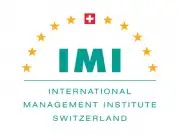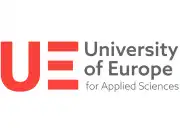Master's degree programs abroad for international students
- Advantages of studying on Master's programs abroad
- Formats and levels of Master's programs abroad
- Top universities for Master's programs abroad
- How to apply for Master's programs abroad
- Language of instruction and preparation for admission
- Tuition fee for Master's programs abroad
- Scholarships and grants for Master's programs abroad
- Career prospects after Master's programs abroad
- Frequently asked questions

Master of Science - International Hospitality and Events Management
International Management Institute SwitzerlandThis MSc program, offered by IMI, is designed for students who have a Bachelor's degree but no professional experience. The curriculum focuses on core strategic management skills in the hotel and events industries and provides a wide understanding of operational management, planning, and strategy…

Master of Science - Computer Science and Software Engineering
Constructor University - Bremen, GermanySchaffhausen Institute of Technology (SIT) and Constructor University Bremen jointly provide a Master of Science in Computer Science and Software Engineering (MSc CSSE) program that combines a research-driven approach, a strong academic atmosphere, and direct linkages to the corporate sector.
The…

Master of Science - Advanced Software Technology
Constructor University - Bremen, GermanyComprehensive instruction in advanced computing paradigms, data-driven analysis, and software development is offered via the Master's Program in Advanced Software Technology, which was established in partnership with JetBrains.
The goal of this curriculum is to give students strong skills…

Master of Science - International Hospitality Business Management
B.H.M.S - Business and Hotel Management School - Lucerne, SwitzerlandGraduates and those seeking to advance their careers in the hospitality industry can benefit from the M.Sc. programs by gaining a deeper understanding of the industry and more advanced skills.
Students will gain the skills and information necessary for a successful career in the hospitality,…

Master of Arts - New Media Design
University of Europe for Applied Sciences - GermanyOur society is becoming more mobile, and thanks to digital media, concepts like "space" and "distance" are undergoing a fundamental transformation.
Today, an entire industry focuses on communicating and producing information, brands, and experiences in media spaces.
UE teaches…

Master of Arts - Photography
University of Europe for Applied Sciences - GermanyOur MA program expands your photography knowledge.
You'll understand contemporary art practices and requirements, maximizing artistic and professional potential. Our curriculum encourages you to explore the cultural, political, and social significance of photography and to develop an individual…

Master of Arts - Communication Design
University of Europe for Applied Sciences - GermanyUE's Master's in Communication Design combines theory and practice to strengthen knowledge and skill set and develop relevant solutions and an advanced design process.
The program promotes creative design skills, art and design theory and history, the ability to critically analyze contemporary…

Master of Arts - Visual and Experience Design
University of Europe for Applied Sciences - GermanyDesign roles are always changing.
Modern design incorporates physical and digital media.
Experience design helps companies deliver brand, product, and service messages and engage customers through digital touchpoints. While many experiences involve multiple senses, visual communication…

Master of Arts - Creative Computing
University of Europe for Applied Sciences - GermanyCreative Computing Master's focuses on data and code in digital design and computational art.
The program emphasizes research-based and critique-driven data integration. Students will assess their ability to mediate human experiences in digital ecosystems and creative processes that address…

Master of Arts - Innovation Design Management
University of Europe for Applied Sciences - GermanyThis master's program combines art and business.
Its purpose is to create individuals willing to tackle complex problems in a quickly changing world and able to apply creative, business, and technological abilities.
This is done through high-intensity project activities in close…
Advantages of studying on Master's programs abroad
Master's abroad is becoming an increasingly popular choice among students who strive to develop their career, gain international experience and expand academic knowledge. The main advantages include:
- Quality world-class education. Universities from leading QS and THE rankings offer modern programs that meet the demands of the global labor market.
- Flexibility of choice. One can enroll in a Master's program both immediately after a Bachelor's degree and after several years of work, choosing an academic or professional direction.
- Wide career opportunities. A diploma from a prestigious university significantly increases the chances of employment in international companies.
- Cultural experience. Studying abroad helps develop intercultural communication skills and broadens one's horizons.
- Financial return. Graduates of foreign Master's programs on average earn 20–40% more compared to those who completed a Master's degree in their home country.
Formats and levels of Master's programs abroad
- By program type:
- Taught Master's – courses with lectures, seminars, exams and projects.
- Research Master's – emphasis on research work and writing a dissertation.
- Professional Master's – practice-oriented programs that prepare specialists for specific professions.
- By duration:
- 1 year – in most UK universities and some European universities.
- 2 years – in the USA, Canada, Australia, Germany and a number of other countries.
- By study format:
- full-time study;
- part-time (suitable for combining with work);
- online or blended courses.
Top universities for Master's programs abroad
| University | Master's program | Tuition fee for international students (per year) | QS / THE Ranking |
|---|---|---|---|
| Massachusetts Institute of Technology (USA) | Computer Science, Engineering, Business | USD 55 000–60 000 | QS №1, THE top-5 |
| University of Cambridge (UK) | Education, Engineering, Management | GBP 24 000–38 000 | QS №2, THE top-3 |
| University of Oxford (UK) | Economics, Law, Finance | GBP 25 000–40 000 | QS №3, THE top-2 |
| Harvard University (USA) | Data Science, Public Policy, Business | USD 53 000–60 000 | QS №4, THE top-5 |
| Stanford University (USA) | Engineering, Computer Science, MBA | USD 56 000–62 000 | QS №6, THE top-5 |
| National University of Singapore (Singapore) | Business, Engineering, Law | SGD 35 000–40 000 | QS №11, THE top-20 |
| University of Melbourne (Australia) | International Relations, Medicine, IT | AUD 35 000–45 000 | QS №14, THE top-35 |
How to apply for Master's programs abroad
Application stages:
- Choose a country and university, considering the ranking, tuition fee and language of instruction.
- Clarify the admission requirements: level of education, average grade, exam results.
- Prepare the necessary documents:
- passport valid for the entire period of study + at least 6 months;
- Bachelor's diploma and transcript with grades;
- language certificate (IELTS, TOEFL, Duolingo);
- motivation letter or essay;
- recommendations (from teachers or employers);
- resume (CV)
- portfolio (for creative fields).
- Submit an application online through the university website.
- Pay the application fee (if required).
- Pass an interview (if provided).
- Receive a letter of acceptance and pay a deposit.
Language of instruction and preparation for admission to Master's programs abroad
- Main language of instruction – English, but in Europe there are programs in German, French, Spanish and other languages.
- Language requirements – usually IELTS from 6.5–7.0 or TOEFL equivalent.
- Preparatory programs:
- Pre-Master's – designed specifically for international students who want to improve their knowledge and language.
- Foundation Year or Pathway Program – duration 6–12 months, cost from USD 5 000 to USD 15 000.
- Who needs preparatory programs – those who do not meet the language level or whose academic credits do not fully meet the university requirements.
Tuition fee for Master's programs abroad
- Cost range:
- Europe – from EUR 5 000 to EUR 20 000 per year.
- UK – from GBP 20 000 to GBP 40 000.
- USA and Canada – from USD 25 000 to USD 60 000.
- Australia and New Zealand – from AUD 30 000 to AUD 45 000.
- Approximate monthly expenses:
- accommodation – USD 500–1 500;
- food – USD 200–500;
- transport – USD 50–200;
- health insurance – USD 50–200;
- personal expenses – USD 100–300.
- Financial requirements for a visa:
- it is necessary to show the availability of funds in the account to cover the first year of study and living. On average, this is from USD 15 000 to USD 25 000 depending on the country.
Scholarships and grants for Master's programs abroad
Types of financial support:
- Academic scholarships – for high average grade and achievements.
- Financial aid – for students with limited payment capabilities.
- Scholarships for motivation and personal qualities – awarded based on essays and interviews.
- University grants – reduction of tuition fee for talented students.
- Assistant and research positions – opportunity to work at the university and receive payment.
- Corporate scholarships – support from large companies for future employees.
Criteria: High average grade, strong motivation letter, quality recommendations, work or research experience.
Deadlines: Application for scholarships usually coincides with application deadlines – 6–9 months before the start of studies.
Examples of scholarships for CIS and Indian students: In Germany and France, international students can apply for partial grants covering from 20 to 100% of the tuition fee. In Canada, universities offer the Graduate Entrance Scholarship, which reduces the cost of a Master's degree by 2,000–10,000 Canadian dollars per year. In Australia, the Vice-Chancellor's International Scholarship is available, providing discounts of up to 50% of the program cost for students from India and Russia. In the UK, many universities offer regional discounts and partial grants for students from Eastern Europe and South Asia. In the USA, international students actively use research and teaching assistant positions, which allow them to study and earn income simultaneously, covering tuition and living expenses. In the Netherlands, university grants for students from countries outside the EU are popular, ranging from 5,000 to 15,000 euros. In Singapore, some universities reduce the cost of a Master's degree for students from India and the CIS through the International Student Award. In the United Arab Emirates, universities provide scholarships based on academic achievements, which reduce the cost of a Master's degree by 25–75%.
Career prospects after Master's programs abroad
- In-demand fields: IT, engineering, finance, biotechnology, medicine, international law, marketing.
- Internships: during studies, many universities offer internships in companies, which simplifies further employment.
- Employers: international corporations, consulting agencies, banks, IT companies, research centers.
- Salary increase: graduates of foreign Master's programs receive 20–40% higher income compared to graduates of local universities.
- Investment in the future: a Master's diploma from a prestigious university increases competitiveness and accelerates career growth.
Frequently asked questions
1. What do Master's programs abroad give to international students?
Master's programs abroad allow you to gain in-depth knowledge in the chosen field, develop research skills and increase competitiveness in the international labor market.
2. Is it possible to enroll in Master's programs abroad immediately after a Bachelor's degree?
Yes, many universities accept students immediately after completing a Bachelor's degree. However, some Master's programs abroad, especially professional ones, require work experience.
3. What level of language is needed for admission to Master's programs abroad?
In most cases, universities require certificates of international exams confirming knowledge of the English language. For admission to Master's programs abroad, a level corresponding to IELTS 6.5–7.0 or equivalent is usually sufficient.
4. How much does tuition and accommodation cost for Master's programs abroad?
The cost of Master's programs abroad varies from 25,000 to 60,000 US dollars per year, depending on the country and university. Additionally, expenses for accommodation, meals and insurance should be taken into account.
5. Are there scholarships for international students for Master's programs abroad?
Yes, universities offer academic scholarships, financial aid, grants, assistant positions and corporate support programs. This allows reducing the tuition fee for Master's programs abroad.